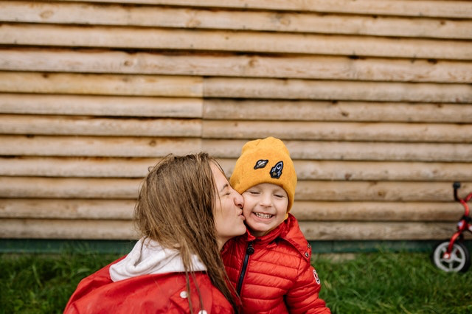Sexual child abuse can happen anywhere, both in-person and online, and is related to many different factors. Reports show that during the COVID-19 pandemic the online risks of sexual abuse have notably increased, as both children and adults spend more time online, while physical distancing has restricted contact and interaction between children and supportive adults, such as teachers. Under these circumstances, the role of parents in protecting their children from online abuse has become even more crucial. However, in order to be able to identify risks and protect their children, parents must have access to proper information and formal trainings regarding child abuse prevention.
Research that was conducted under the Erasmus+ program STOP – “Stop Child Abuse Through Effective Training and Augmented Reality” in Croatia, Greece, Italy, Spain and Cyprus has shown a lack of proper awareness among parents regarding the different types of sexual abuse and the ways to prevent it. Parents get the majority of information about sexual abuse mainly from their peers and through informal means (ex. articles and research on the internet), and secondly through trainings in schools or parents’ associations. As a result, they are not adequately informed on the subject. Even though they realize that internet access comes with risks, they cannot identify the types of risks that their child may face apart from being groomed on social media or through online chat.
But what parents actually do to prevent child abuse? STOP research shows that, in order to protect their children, parents mostly use parental control functionalities and anti-virus systems to protect devices from external attacks. Secondly, some of them talk with their children about the risks of online sexual abuses. The majority of parents believe that to reduce the risks related to sexual abuse, a strong support from the national legislation is necessary. They also agree that there should be more school trainings to increase their skills and knowledge.
While the role of school in providing such trainings is crucial, parents should not forget their own responsibility to protect and support their child. It is important to be alert, engaged and collaborate closely with teachers and youth workers in order to reduce the online risks of child abuse. Talking to their children about online safety, staying involved – by getting to know the websites, apps and games that their children use – and being alert to signs of distress are key steps in reducing these risks.
The Erasmus+ project STOP aims to decrease sexual abuse and exploitation of children (9-18 years old) by offering an innovative learning methodology to youth workers about sex abuse prevention. The project wants to provide new approaches and tools to youth workers, based on an AR (augmented reality) game to fight child adverse experience both online and offline.
For more information,
- visit STOP website: http://erasmusstop.eu/ or
- join the Facebook community @erasmusstop, STOP child abuse ThrOugh effective training and augmented reality.
